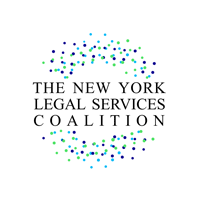Written Testimony of the Western New York Law Center for the Chief Judge’s 2024 Hearing on Civil Legal Services in New York
My name is Karen Welch, and I serve as the Executive Director of the Western New York Law Center in Buffalo, NY. I am honored to present testimony to the Chief Judge’s 2024 Hearing on Civil Legal Services in New York.
Since the 1990s, our organization has been committed to providing free legal representation to low-income residents throughout Western New York. We operate walk-in consumer clinics, defend tenants from eviction, protect homeowners from foreclosure, advocate for students facing school suspensions, support low-income entrepreneurs, and tackle issues related to vacant and abandoned properties in collaboration with local municipalities.
Buffalo and Niagara Falls, two key cities within our service area, are among the most economically challenged in New York State. This dire economic climate has created an overwhelming demand for legal services. As you are aware, our judicial system, while striving to assist the unrepresented, must remain impartial. Effective legal representation is crucial for those navigating the courts. The private bar, including many dedicated members of the Bar Association, provides invaluable pro bono services. Yet, the gap between the need for legal assistance and the available resources is vast.
We rely on funding from the New York State Interest on Lawyer Account Fund (IOLA), the Office of Court Administration, and the Attorney General’s Office to support our clients with critical issues like consumer debt, evictions, and foreclosures. Despite these efforts, the need for legal services in our region remains significant and unmet.
One of the most pressing needs concerns tenants living in unsafe housing conditions. Buffalo’s rental housing stock consists almost entirely of properties built before 1980, making it some of the oldest rental housing in the State. Many landlords are small investors, and tenants and landlords both face challenges due to systemic inequalities, economic hardships, and insufficient funding for property maintenance. In our experience through our eviction prevention practice, unsafe and unhealthy housing conditions are pervasive, and disputes over these conditions play a role in many evictions. The Tenant Dignity and Safe Housing Act of 2022 has given tenants a legal pathway to seek necessary repairs by filing a summary proceeding against their landlord, but many tenants are left unrepresented in these disputes, often facing landlords with legal counsel. Without access to counsel, tenants cannot effectively vindicate their rights and the new law will remain effectively a dead letter. Increased funding is thus essential to support tenants in preserving their homes while addressing hazardous conditions, reducing both the frequency of evictions and the strain on emergency housing resources.
There is also an urgent need for more legal assistance for homeowners facing foreclosure in Western New York. According to data from the New York State Unified Court System, our region has the highest rate of residential foreclosure filings outside of New York City and its suburbs. Last year alone, Erie and Niagara Counties saw 790 new foreclosure filings and 739 pending cases. Our Center has expanded its staff to address this crisis, but the demand for foreclosure prevention services continues to outstrip our capacity. Additional resources to support early intervention through loan modifications would prevent lengthy court battles, reducing costs in the long run for both homeowners and the court system.
Consumer debt is another area of significant unmet need. Consumer debt makes up a large share of the civil docket in the City Courts and Supreme Courts throughout Western New York. We have been able to leverage interns and volunteers, as well as using technology to provide services remotely, to help large numbers of people through limited-scope consumer debt clinics. But many fall through the cracks under this model, particularly the elderly and disabled, who face challenges in traveling to clinics or court appearances or accessing technology, and domestic violence victims, whose privacy and anonymity needs and more complex defenses do not lend themselves well to the limited-scope model. Additional resources are necessary to ensure that these most vulnerable populations have the same opportunity to assert their rights as other defendants.
Civil legal services are a cornerstone of justice, ensuring that all New Yorkers have access to the courts. Despite our efforts to leverage remote technology and expand our reach, the demand for legal services far exceeds our current resources. Additionally, disparities in pay between legal services employees and their counterparts in the private sector and government continue to impact our ability to attract and retain skilled staff. This pay gap has already grown so large that just maintaining the current level of service requires increased funding, and as I have described, what our community really needs is not just maintenance but expansion of services.
"Access to justice" is a fundamental societal obligation, one that cannot be fulfilled without adequate legal representation. The consequences of failing to provide this access are borne most heavily by those least able to bear them. Thank you for considering these critical issues and for your commitment to ensuring equal access to justice for all members of our community.
Sincerely,
Karen Welch
Executive Director
Western New York Law Center, Inc.

